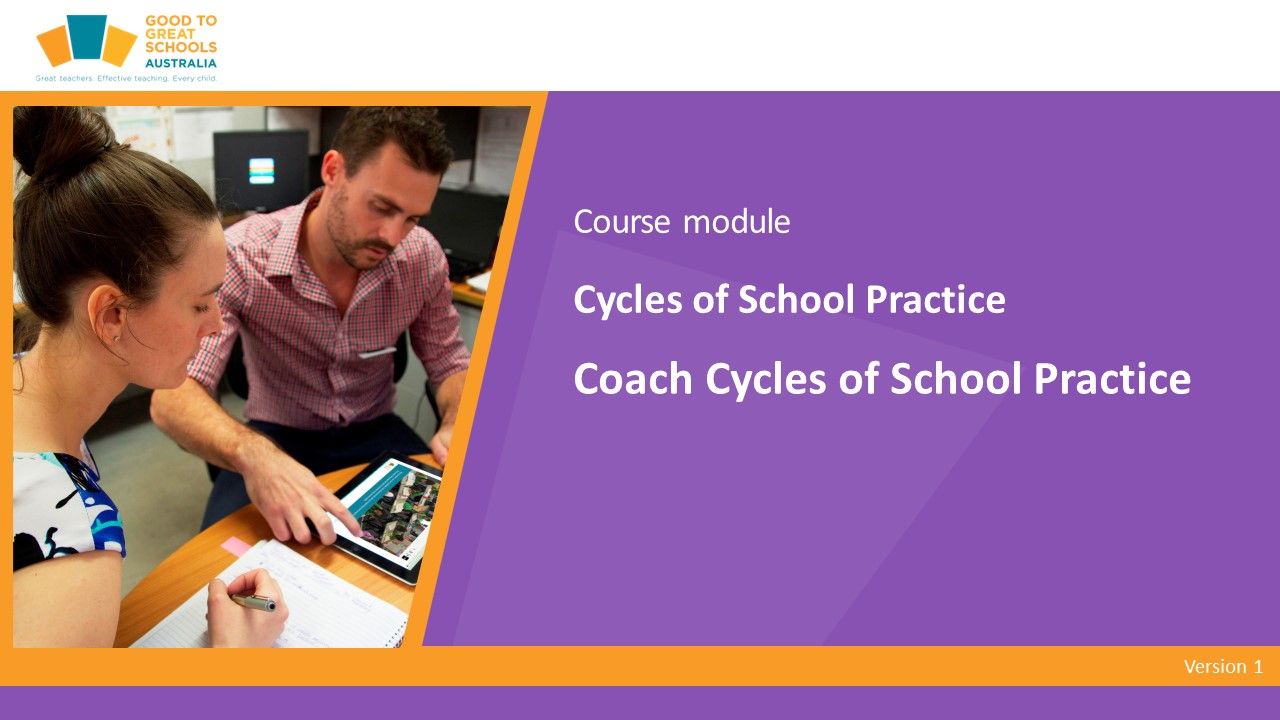Effective Teaching

- Understand the need for change and for a high expectations culture and no excuses approach (2.2.01).
- Apply a high expectations culture and a no excuses approach (2.2.01).
- Communicate to leaders and teaching faculty the need for change (2.2.01).
- Understand how shared accountability leads to achievement of high standards (2.2.03).
- Apply cycles of review, responsibility, and shared accountability to achieve high standards (2.2.03).
- Communicate the importance of shared accountability in achieving high standards (2.2.03).
- Understand the need for a culture of continuous improvement (2.3.04).
- Apply principles of continuous improvement across the school (2.3.04).
- Communicate a culture of continuous improvement as a key characteristic of the school (2.3.04).
- Evaluate ways of improving participation in school improvement efforts (2.3.07).
- Understand how effective teaching affects instructional improvement (2.1.01).
- Plan student groups based on placement testing (2.1.06).
- Understand how to use placement test data to place students in their correct levels and programs (2.2.02).
- Apply key practices that support effective teaching and positive behaviour interventions and strategies (2.1.01).
- Apply cycles of practice that support effective teaching implementation (2.1.02).
- Evaluate mastery of effective teaching and behaviour techniques amongst teachers and teaching assistants and provide suggestions for improvement (2.1.05).
- Plan training and coaching as per the professional development plan (2.1.05).
- Implement coaching and feedback cycles of practice (2.1.05).
- Plan regular professional conversations (2.1.07).
- Review participation of school leaders and teaching faculty in professional conversations. (2.1.07).
- Evaluate participation data and encourage the entire school team to participate in collegial activities (2.1.07).
- Review groups, resource setup and schedules throughout the year (2.1.06).
- Evaluate practices around student placement testing, grouping, resource setup and schedules and determine where improvements can be made (2.1.06).
- Apply oversight to delivery of effective teaching, including placement and movement of students in programs (2.2.02).
- Communicate with leadership and teaching faculty how decisions are made regarding student placement and movement to maximise mastery (2.2.02).
- Apply methods for collecting and interpreting evidence to identify and share successful strategies (2.3.02).
- Communicate to leadership and teaching faculty examples of excellent teaching and learning (2.3.02).
- Implement cycles of practice that lead to personal improvement of teaching faculty (2.3.06).
- Motivate school team to seek opportunities for professional growth (2.3.09).
- Model ongoing development through personal participation in professional growth opportunities (2.3.09).
- Coach school team in development of a personal learning plan to progress their development to mastery (2.3.09).
- Coach teaching faculty in identifying coaching and training needs (2.2.11).
- Evaluate improvement efforts based on student mastery data (2.02.6).
- Apply effective collaborative skills in working with agencies to support students and families (2.4.03).
- Communicate the importance of collaborative efforts in ensuring the health, wellbeing and safety of students.
- Plan opportunities for collaborative practices in the school (2.3.07).
- Implement practices that allow everyone in the school team to contribute to improvement (2.3.07).
- Review participation of individuals in contributing to school improvement (2.3.07).
- Embed practices to review effectiveness of processes to improve performance (2.02.14).
- Understand effective practices for engaging the community (2.1.04).
- Understand the importance of parent engagement in improving student outcomes (2.4.01).
- Communicate the importance of parent engagement to teaching faculty as a key aspect of improving student outcomes (2.4.01).
- Plan cycles of practice to cultivate a collaborative and trusting relationship with community (2.4.07).
- Implement practices that cultivate trust between school and community (2.4.07).
- Plan specific strategies for hard-to-reach parents (2.04.08).
- Learn Effective Teaching Essentials.
- 12 Lessons
Assessment has three stages:
- Test: Knowledge and skills taught in the lessons.
- Appraisal: Practical application in practicing knowledge and skills learned in the lessons.
- Mastery evaluation: Delivery with students of the knowledge and skills learned in the lessons.
Participants are eligible for certification based on attendance and completion of assessment requirements for each module.
- Certificate of Attendance: Complete online training and knowledge and skills tests.
- Certificate of Participation: Pass knowledge and skills video Appraisal.
- Certificate of Achievement: Pass knowledge and skills video Mastery evaluation.

